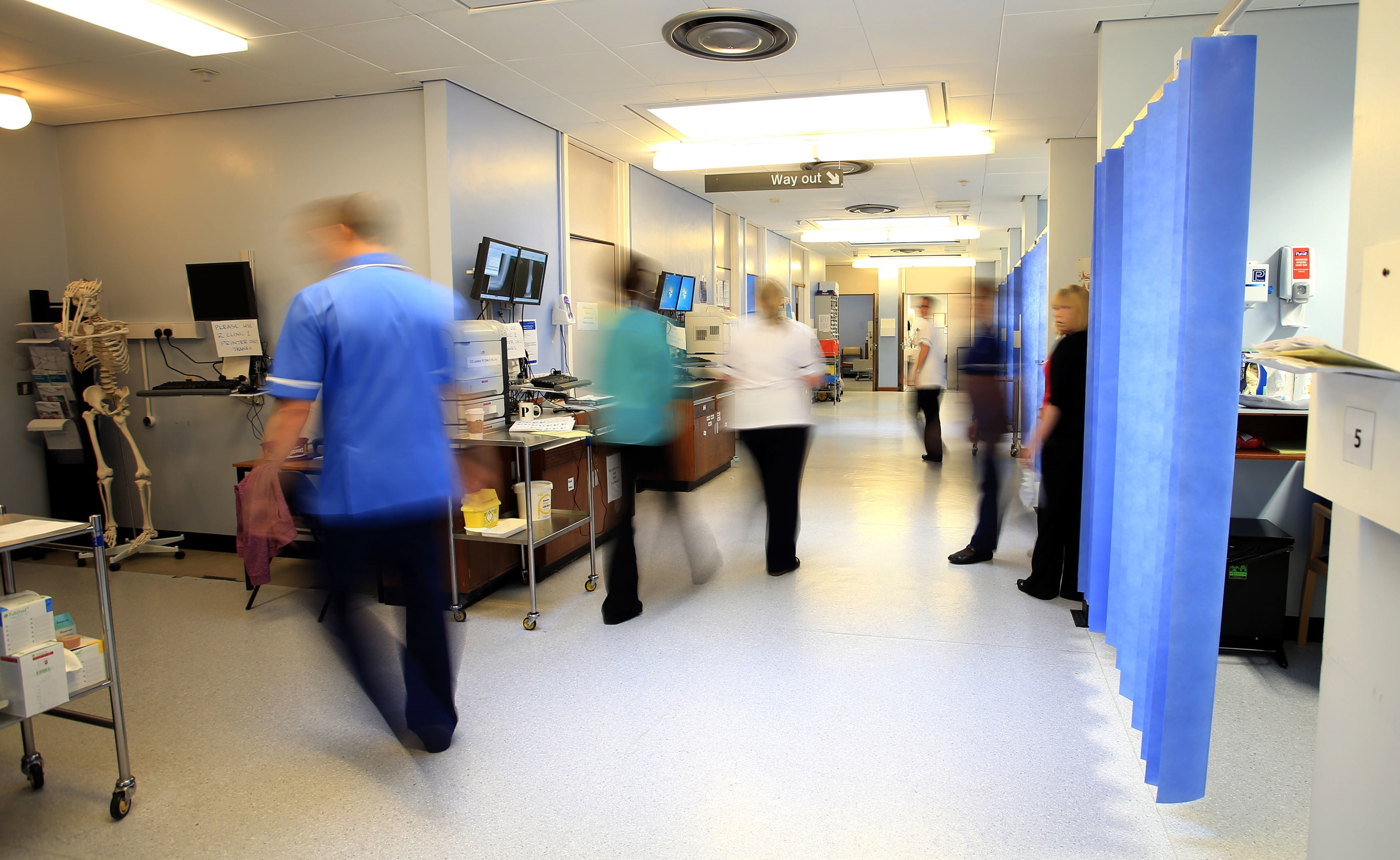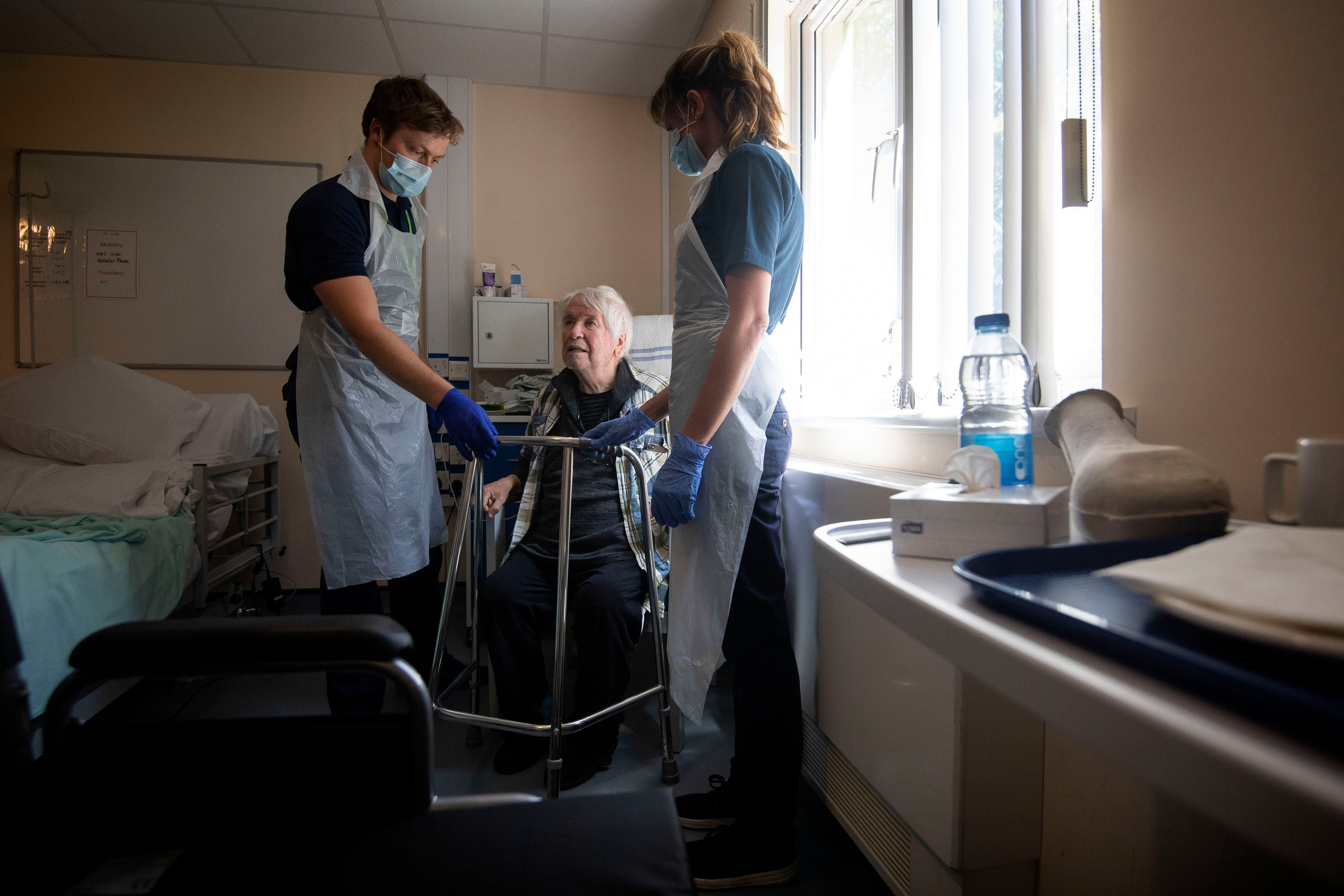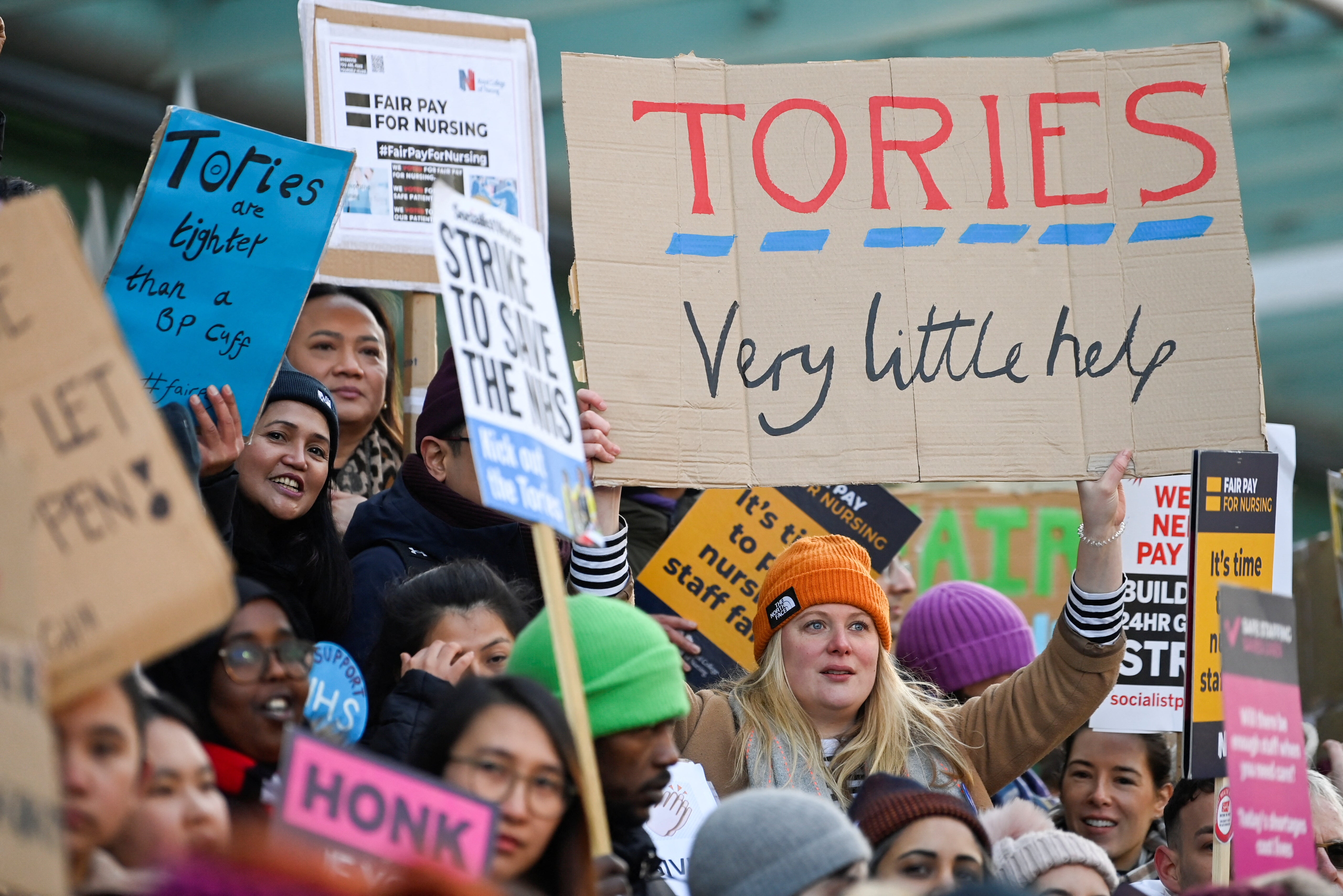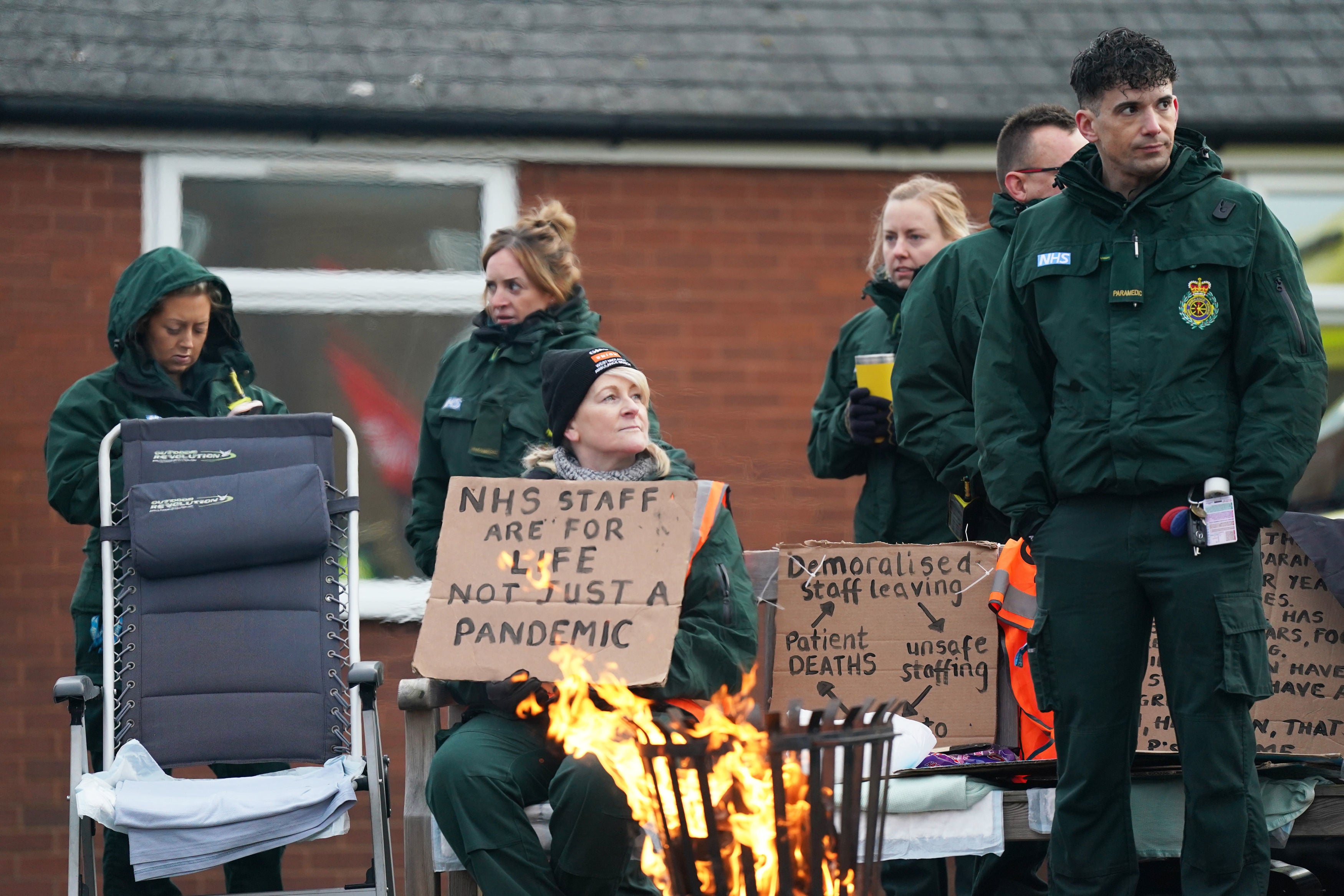New plan to ‘fix’ emergency care unveiled as crisis engulfs NHS
The plan set out new measures for health services provided in patients’ homes

Your support helps us to tell the story
From reproductive rights to climate change to Big Tech, The Independent is on the ground when the story is developing. Whether it's investigating the financials of Elon Musk's pro-Trump PAC or producing our latest documentary, 'The A Word', which shines a light on the American women fighting for reproductive rights, we know how important it is to parse out the facts from the messaging.
At such a critical moment in US history, we need reporters on the ground. Your donation allows us to keep sending journalists to speak to both sides of the story.
The Independent is trusted by Americans across the entire political spectrum. And unlike many other quality news outlets, we choose not to lock Americans out of our reporting and analysis with paywalls. We believe quality journalism should be available to everyone, paid for by those who can afford it.
Your support makes all the difference.Thousands more hospital beds and 800 new ambulances are at the centre of a new government plan for emergency care unveiled today.
The new blueprint for urgent and emergency care will boost under-strain services in the NHS, backed by a dedicated £1bn fund.
Rishi Sunak said the “ambitious and credible” measures would relieve the severe pressures on the NHS which have dominated this winter.
The strategy is aimed at expanding urgent care in the community, keeping people away from hospitals and emergency departments.
It is hoped the plan will cut waiting times and backlogs to treatment, which the prime minister has included as one of his top priorities.
Mr Sunak said: “It will take time to get there but our plan will cut long waiting times by increasing the number of ambulances, staff and beds – stopping the bottlenecks outside A&E and making sure patients are seen and discharged quickly.”
But Labour has criticised the plans, with shadow health secretary Wes Streeting accusing Mr Sunak of “watering down standards”.
He said: “Thirteen years of Conservative mismanagement of the NHS has left patients waiting longer than ever before for an ambulance or in A&E. Now Rishi Sunak is watering down standards for patients.
“Even if the NHS achieves his targets, patients will be left waiting longer than is safe. Expecting the Conservatives to fix the crisis in the NHS is like expecting an arsonist to put out the fire they started, it is just not going to happen.”

The NHS plan also includes provisions for new pilot schemes aimed at improving step-down care, with patients receiving treatments such as rehabilitation and physiotherapy at home in some instances.
The Department of Health announced over the weekend that 3,000 “hospital at home” beds will be created before next winter, with suggestions that the new provisions could care for around 50,000 people a month at home, instead of in hospital.
Responding to the plan, Professor Adam Gordon, president of the British Geriatric Society, said it “addresses system-wide issues that go far beyond the hospital front door”.
He added: “The emphasis on care closer to home, alternatives to hospital admission, rehabilitation and person-centred care is very welcome.”
Health secretary Steve Barclay said: “With the NHS under unprecedented pressure from high Covid and flu cases and the backlog from the pandemic, too many people are waiting too long in A&E or for ambulances.
“Today’s plan, which is backed by record investment, aims to rapidly cut waiting times, helping to deliver on one of the government’s five priorities, while giving patients the confidence that health and social care services will be there for them when they need them.”

The new strategy comes as the government is locked in an ongoing dispute with health workers over pay and conditions, with further strikes planned for February.
Patricia Marquis, director for England from the RCN, said the new plan was on the right lines. However she warned: "But this plan relies on ramping up community services - services which in the case of nursing have been decimated in recent years.
"There is a dire workforce shortage across nursing and it is biting particularly hard in community services, with the number of district nurses falling significantly in the last decade amid soaring demand and care needs becoming increasingly complex.
“Without investment in staff, this plan won't make a difference.”

Further measures included are centred on staffing and workforce reforms, with proposals to give NHS more flexibility and making it easier for staff to move between hospitals and work in services like 111, while expanding options for emergency call handlers to work remotely.
Saffron Cordery, interim chief executive at NHS Providers, called the new strategy a “timely announcement” but warned that the plans were “not enough in themselves”.
She added: “We desperately need action to tackle the vast workforce shortages, staff exhaustion and burnout, and the inability to free up capacity by discharging medically fit patients in a safe and timely way.”
Ministers are aiming to ensure 76 per cent of A&E patients are seen within four hours by March next year, while category two ambulance response times, for conditions such as suspected strokes, heart attacks, burns and epilepsy, are arriving at an average of 30 minutes over the next year.
Matthew Taylor, chief executive of the NHS Confederation, called the strategy an “important roadmap”, but warned: “Success over the next two years will not only depend on NHS staff continuing to go above and beyond, but also on concerted action to reduce the numbers of people needing to come into contact with emergency and urgent care services in the first place.”
The plan will be unveiled on Monday at an A&E department in the northeast by Mr Sunak, Mr Barclay and chief executive for NHS England Amanda Pritchard.
“The NHS has been under more pressure than I have ever known in my 25 years working in the service,” Ms Pritchard said.
“The history of the NHS is one of change and innovation and so, while striving to meet the needs of today’s patients, we are also looking to the future of the NHS and will shortly set out our workforce plan – which is a once-in-a-generation opportunity to put the NHS on a sustainable footing.”







Join our commenting forum
Join thought-provoking conversations, follow other Independent readers and see their replies
Comments